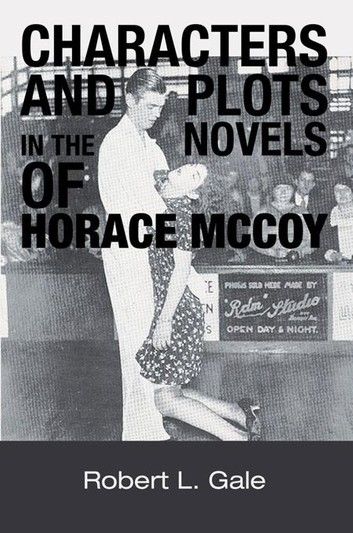| FindBook |
|
有 1 項符合
Robert L. Gale的圖書 |
 |
$ 138 電子書 | Characters and Plots in the Novels of Horace Mccoy
作者:Robert L. Gale 出版社:AuthorHouse 出版日期:2013-01-21 語言:英文  看圖書介紹 看圖書介紹
|
|
|
Tennessee-born Horace McCoy joined the American Air Service in WWI, was wounded flying over France, became a reporter-actor in Dallas. In Hollywood, he was popular as a handsome actor, then toiled as a prolific movie-script writer. McCoy burst into fame with his first novel, They Shoot Horses, Dont They?, about Depression-era marathon dancers. His No Pockets in a Shroud features a social climber bribed to have his marriage annulled by the brides rich father, then establishing a radical magazine. I Should Have Stayed Home exposes Hollywood moguls and rich old women exploiting would-be actors and actresses. Kiss Tomorrow Goodbye features warfare between a professional criminal and corrupt law-enforcement agents. When made into a movie it starred Jimmy Cagney. Additional films were based on McCoys fiction. McCoy visited England and France where translations of his works were admired by existentialists. Scalpel, his best-seller, features Tom Owen, a successful WWII military surgeon at odds with his superiors, including General Patton. Owen returns to his Western Pennsylvania roots to investigate his brothers death, is drawn into high-society--temporarily? Well-educated Owen perhaps resembles what McCoy aspired to be. But love of cars, wine, travel, and the high life clipped his wings. He left Corruption City, a sixth novel, in fragmentary form--completed by a ghost writer and blasting yet another set of unclean cops and thieving politicians. McCoys popularity in Europe may be better than in America, a land he loved and wished were cleaner. This book begins with a chronology of major events in the life of Horace McCoy (1897-1955), and then in one alphabetized sequence synopsizes the plots of his six novels and identifies each of their 494 characters--often with critical comments by publishing scholars, including Gale. It concludes with a select bibliography showing the range of scholarship on McCoy, then an index.
|











